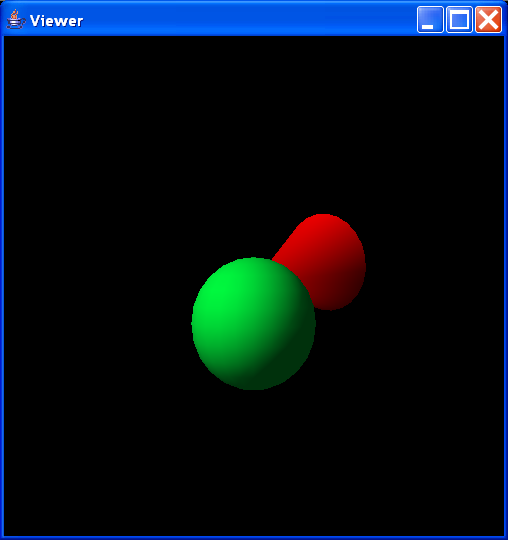Light Viewer

/*
* @(#)Viewer.java 1.14 02/10/21 13:44:30
*
* Copyright (c) 1996-2002 Sun Microsystems, Inc. All Rights Reserved.
*
* Redistribution and use in source and binary forms, with or without
* modification, are permitted provided that the following conditions
* are met:
*
* - Redistributions of source code must retain the above copyright
* notice, this list of conditions and the following disclaimer.
*
* - Redistribution in binary form must reproduce the above copyright
* notice, this list of conditions and the following disclaimer in
* the documentation and/or other materials provided with the
* distribution.
*
* Neither the name of Sun Microsystems, Inc. or the names of
* contributors may be used to endorse or promote products derived
* from this software without specific prior written permission.
*
* This software is provided "AS IS," without a warranty of any
* kind. ALL EXPRESS OR IMPLIED CONDITIONS, REPRESENTATIONS AND
* WARRANTIES, INCLUDING ANY IMPLIED WARRANTY OF MERCHANTABILITY,
* FITNESS FOR A PARTICULAR PURPOSE OR NON-INFRINGEMENT, ARE HEREBY
* EXCLUDED. SUN AND ITS LICENSORS SHALL NOT BE LIABLE FOR ANY DAMAGES
* SUFFERED BY LICENSEE AS A RESULT OF USING, MODIFYING OR
* DISTRIBUTING THE SOFTWARE OR ITS DERIVATIVES. IN NO EVENT WILL SUN
* OR ITS LICENSORS BE LIABLE FOR ANY LOST REVENUE, PROFIT OR DATA, OR
* FOR DIRECT, INDIRECT, SPECIAL, CONSEQUENTIAL, INCIDENTAL OR
* PUNITIVE DAMAGES, HOWEVER CAUSED AND REGARDLESS OF THE THEORY OF
* LIABILITY, ARISING OUT OF THE USE OF OR INABILITY TO USE SOFTWARE,
* EVEN IF SUN HAS BEEN ADVISED OF THE POSSIBILITY OF SUCH DAMAGES.
*
* You acknowledge that Software is not designed,licensed or intended
* for use in the design, construction, operation or maintenance of
* any nuclear facility.
*/
import java.applet.Applet;
import java.awt.BorderLayout;
import java.awt.GraphicsConfiguration;
import javax.media.j3d.BranchGroup;
import javax.media.j3d.Canvas3D;
import javax.media.j3d.Transform3D;
import javax.media.j3d.TransformGroup;
import javax.media.j3d.View;
import javax.vecmath.Matrix4d;
import com.sun.j3d.loaders.Loader;
import com.sun.j3d.loaders.Scene;
import com.sun.j3d.loaders.lw3d.Lw3dLoader;
import com.sun.j3d.utils.applet.MainFrame;
import com.sun.j3d.utils.universe.SimpleUniverse;
/**
* This class loads in a Lightwave3D file and displays it in an applet window.
* The application is fairly basic; a more complete version of a Lightwave 3D
* loader might incorporate features such as settable clip plane distances and
* animated views (these are both possible with the current Lightwave 3D loader,
* they just need to be implemented in the application).
*/
public class Viewer3D extends Applet {
private java.net.URL filename;
private SimpleUniverse u;
public Viewer3D(java.net.URL url) {
filename = url;
}
public Viewer3D() {
}
public void init() {
if (filename == null) {
// the path to the file for an applet
try {
java.net.URL path = getCodeBase();
filename = new java.net.URL(path.toString() + "./ballcone.lws");
} catch (java.net.MalformedURLException ex) {
System.err.println(ex.getMessage());
ex.printStackTrace();
System.exit(1);
}
}
// Construct the Lw3d loader and load the file
Loader lw3dLoader = new Lw3dLoader(Loader.LOAD_ALL);
Scene loaderScene = null;
try {
loaderScene = lw3dLoader.load(filename);
} catch (Exception e) {
e.printStackTrace();
System.exit(1);
}
// Construct the applet canvas
setLayout(new BorderLayout());
GraphicsConfiguration config = SimpleUniverse
.getPreferredConfiguration();
Canvas3D c = new Canvas3D(config);
add("Center", c);
// Create a basic universe setup and the root of our scene
u = new SimpleUniverse(c);
BranchGroup sceneRoot = new BranchGroup();
// Change the back clip distance; the default is small for
// some lw3d worlds
View theView = u.getViewer().getView();
theView.setBackClipDistance(50000f);
// Now add the scene graph defined in the lw3d file
if (loaderScene.getSceneGroup() != null) {
// Instead of using the default view location (which may be
// completely bogus for the particular file you're loading),
// let's use the initial view from the file. We can get
// this by getting the view groups from the scene (there's
// only one for Lightwave 3D), then using the inverse of the
// transform on that view as the transform for the entire scene.
// First, get the view groups (shouldn't be null unless there
// was something wrong in the load
TransformGroup viewGroups[] = loaderScene.getViewGroups();
// Get the Transform3D from the view and invert it
Transform3D t = new Transform3D();
viewGroups[0].getTransform(t);
Matrix4d m = new Matrix4d();
t.get(m);
m.invert();
t.set(m);
// Now we've got the transform we want. Create an
// appropriate TransformGroup and parent the scene to it.
// Then insert the new group into the main BranchGroup.
TransformGroup sceneTransform = new TransformGroup(t);
sceneTransform.addChild(loaderScene.getSceneGroup());
sceneRoot.addChild(sceneTransform);
}
// Make the scene graph live by inserting the root into the universe
u.addBranchGraph(sceneRoot);
}
public void destroy() {
u.cleanup();
}
/**
* The main method of the application takes one argument in the args array;
* the filname that you want to load. Note that the file must be reachable
* from the directory in which you're running this application.
*/
public static void main(String args[]) {
java.net.URL url = null;
java.net.URL pathUrl = null;
if (args.length > 0) {
try {
if ((args[0].indexOf("file:") == 0)
|| (args[0].indexOf("http") == 0)) {
url = new java.net.URL(args[0]);
} else if (args[0].charAt(0) != '/') {
url = new java.net.URL("file:./" + args[0]);
} else {
url = new java.net.URL("file:" + args[0]);
}
} catch (java.net.MalformedURLException ex) {
System.err.println(ex.getMessage());
ex.printStackTrace();
System.exit(1);
}
} else {
// the path to the image for an application
try {
url = new java.net.URL("file:./ballcone.lws");
} catch (java.net.MalformedURLException ex) {
System.err.println(ex.getMessage());
ex.printStackTrace();
System.exit(1);
}
}
new MainFrame(new Viewer3D(url), 500, 500);
}
}
 Lightwave.zip( 11 k)
Lightwave.zip( 11 k)Related examples in the same category